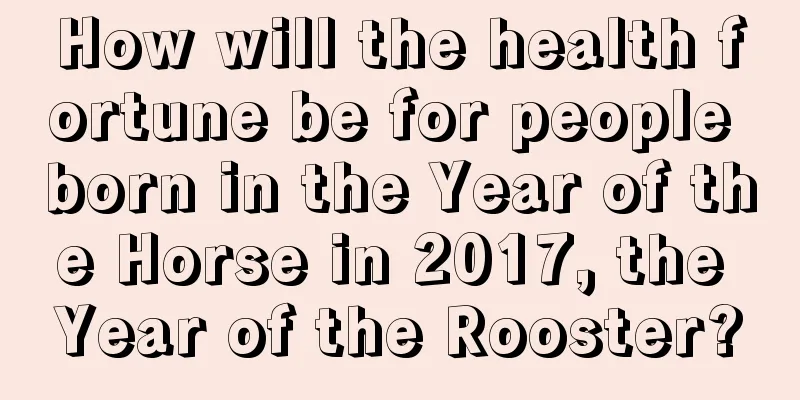How many days are left until the Dragon Boat Festival in 2018? How many days are left until the Dragon Boat Festival in 2018?

The Dragon Boat Festival is the first of the Nine Poisonous Days. The ancients set up the Dragon Boat Festival to remind everyone to pay attention to health preservation and disease prevention. Therefore, there are many rituals to ward off evil spirits and poisons on this day, such as drinking realgar wine, inserting mugwort, and wearing sachets. How many days are left until the Dragon Boat Festival in 2018? How many days until the Dragon Boat Festival in 2018? On the fifth day of the fifth month of the lunar calendar, we usher in the new year’s Dragon Boat Festival amidst the aroma of rice dumplings. Let’s follow the Fortune Teller website to take a look at the information about the Dragon Boat Festival in 2018!The Dragon Boat Festival in 2018 is:Monday, June 18, 2018 (Year of the Dog) Lunar calendar year 2018, fifth day of the fifth month, 12 days until Dragon Boat Festival 2018Dragon Boat Festival Introduction:The Dragon Boat Festival is on the fifth day of the fifth month of the lunar calendar every year. It is also known as the Duanyang Festival, the Mid-day Festival, the May Festival, the Fifth Festival, the Mugwort Festival, the Duanwu Festival, the Double Fifth Festival, the Mid-day Festival, and the Summer Festival. It was originally a summer festival to drive away plague. Later, the Chu poet Qu Yuan committed suicide by jumping into the river on the Dragon Boat Festival, and it became a festival to commemorate Qu Yuan. "Duan" means "beginning" or "beginning". The fifth day of the first lunar month can be called Duanwu, which is known as one of the four major traditional festivals of the Han Chinese along with the Spring Festival, Qingming Festival and Mid-Autumn Festival.What are the customs of the Dragon Boat Festival?Dragon Boat Racing : At that time, the people of Chu were reluctant to see the death of their virtuous minister Qu Yuan, so many people rowed boats to chase and rescue him. They rushed to chase him, but he disappeared when they reached Dongting Lake. This was the origin of dragon boat racing. Later, dragon boat races were held every year on May 5th to commemorate this event. Dragon boat racing is used to drive away the fish in the river to prevent them from eating Qu Yuan's body. The custom of racing boats was popular in Wu, Yue and Chu. Dragon boat racing began in Taiwan in the 29th year of Emperor Qianlong's reign in the Qing Dynasty. At that time, Taiwan's prefect Jiang Yuanjun hosted a friendly competition at the Half Moon Pond of the Fahua Temple in Tainan City. Now Taiwan holds dragon boat races every year on May 5th. There are dragon boat races in Hong Kong. Recently, the British have also followed the Chinese example and organized foreign teams to carry out competitions.Hanging the image of Zhong Kui : Zhong Kui catching ghosts is a custom of the Dragon Boat Festival. In the Jianghuai region, every household hangs an image of Zhong Kui to ward off evil spirits. During the Kaiyuan period of the Tang Dynasty, Emperor Minghuang returned to the palace after giving a military lecture at Mount Li. He suffered from a severe malaria attack and dreamed of two ghosts, one big and one small. The small ghost wore bright red crotchless pants and they stole the sachet of Yang Guifei and the emperor's jade flute and ran around the palace. The big ghost, wearing a blue robe and a hat, caught the little ghost, dug out its eyes, and swallowed it in one gulp. The emperor asked the ghost, and the ghost replied: My surname is Zhong Kui, and I failed the martial arts examination. But I am willing to eliminate demons for your majesty. After the emperor woke up, his malaria was cured. So he ordered the painter Wu Daozi to paint a picture of Zhong Kui catching ghosts according to what he saw in the dream, and ordered the whole country to post it during the Dragon Boat Festival to drive away evil spirits. Gua Mugwort and Calamus : During the Dragon Boat Festival, every family uses calamus, mugwort, pomegranate flowers, garlic and dragon boat flowers to make human figures called mugwort men. Hang the mugwort leaves in the hall, cut them into tiger shapes or little tigers, and stick them with mugwort leaves. Women compete to wear them to ward off evil spirits and drive away miasma. Using calamus as a sword and inserting it on the door lintel has the magical effect of driving away ghosts and removing evil spirits. Wearing sachets : Children wear sachets during the Dragon Boat Festival, not only to ward off evil spirits and plague, but also to decorate their collars. The sachet contains cinnabar, realgar and fragrant medicine and is wrapped in silk cloth. It is fragrant and is then tied into a rope with five-colored silk threads and made into various shapes and tied into a string. It is colorful and eye-catching. Eating zongzi : People in Jingchu cook glutinous rice or steam zongzi cakes and throw them into the river on May 5th to sacrifice to Qu Yuan. To prevent the fish from eating the glutinous rice, they put the glutinous rice in bamboo tubes and throw them down. Later, they gradually used zong leaves to wrap the rice instead of bamboo tubes. Drinking realgar wine : This custom is very popular among families in the Yangtze River Basin. Walking away diseases : This custom is popular during the Dragon Boat Festival in Guizhou. |
<<: A complete list of baby girl names born on Dragon Boat Festival 2018!
Recommend
Is the Great Cold in 2019 a good day? When is the Great Cold this year?
The Great Cold solar term is a time when the weath...
Will Christmas Eve and Christmas be on the same day in 2021? Will apples be given on both days?
Apples are economical and have rich meanings. They...
What is the date and day of the twelfth day of the sixth lunar month in 2018?
The sixth lunar month of 2018 also ushered in sum...
What should you do and what should you avoid when traveling on the 19th day of the sixth lunar month in 2019?
The sixth lunar month of 2019 also ushered in sum...
Is it good for a girl born on the first day of February in 2019? Who are the famous people born on the first day of February?
Is it good for a girl born on the first day of Feb...
Is Double Ninth Festival a legal holiday in my country? Is there a holiday for Double Ninth Festival in 2017?
Introduction: Our country has holiday arrangements...
Is it a good idea to get married and hold a banquet on Dragon Boat Festival in 2021? Things to note and pay attention to when getting married
Holding wedding banquets is a relatively common si...
What is the lunar calendar for March 21, 2022? Can we start work?
The third month of the lunar calendar is a perfect...
How many auspicious days are there for signing contracts in June of the lunar calendar in 2022?
The sixth lunar month is the main month of the dog...
How are people celebrating their birthdays on Christmas Eve 2021? Is it unlucky to be born on Christmas Eve?
Many people celebrate their birthdays every day, s...
Can I pick up the car on July 29th of the lunar calendar in 2022? What are the almanac and hexagrams for this day?
The seventh lunar month is coming to an end and th...
Where is the God of Wealth on the 16th day of the first lunar month in 2020?
Where is the God of Wealth on the 16th day of the...
Can I pray on June 22 of the lunar calendar in 2022? Is it okay to burn incense and worship Buddha on that day?
Praying at a good time will help the things you pr...
Are pig babies born in May of the lunar calendar in 2019 good or bad? What are the personalities of those born in May?
Introduction: Children born in different months ha...
How about the 24th day of the ninth lunar month in 2022? Is it a good idea to start renovation work on the same day?
How about the 24th day of the ninth lunar month in...









